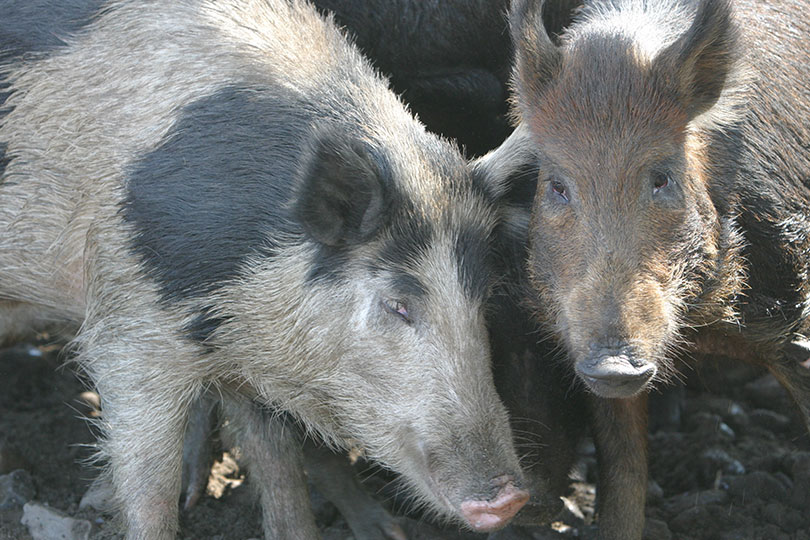By Jennifer Dorsett
Field Editor
The feral hog population in Texas has exploded in recent years, with no sign of slowing down. A recent U.S. Department of Agriculture survey estimated feral hogs caused more than $230 million in damages annually to Texas agriculture from 2015 to 2019.
When it comes to controlling these invasive pests, farmers and ranchers support legalizing reasonable chemical control methods, as well as maintaining all current legal methods of control.
But a budget rider attached to the appropriations bill in both chambers seeks to constrain one of those chemical control methods, warfarin.
“A budget rider was proposed in the bill patterns for the Texas Department of Agriculture (TDA) and the Texas A&M AgriLife Extension Service that prohibits the use of warfarin-based feral hog toxicants that can be used to control the population growth of feral hogs,” Texas Farm Bureau Associate Legislative Director Harold Stone said. “But we hope the budget rider will be deleted from the bill patterns of the appropriation bill for these agencies, and that will allow them to spend appropriation money to research and certify these products that can be used for feral hog control by landowners.”
As the feral hog population continues to spread far beyond rural Texas into suburban and urban areas, more Texans are noticing the pests and requesting help from lawmakers.
“It’s a problem for everyone,” Stone told the Texas Farm Bureau Radio Network. “We will be doing a little advocacy work with our legislators to bring them up to speed on how important the deletion of these riders would be on the addition of that warfarin-based product to the toolbox to fight these feral hogs.”
With an estimated feral hog population of 2.6 million and counting, the numbers in Texas have spiraled so far out of control that current management methods will no longer be enough, Stone noted.
“Even though hunting is a reasonable control method, there’s no way we can hunt ourselves out of this problem,” he said. “We don’t want to inhibit any means of control, whether it’s hunting, trapping, whatever. We just want to be able to add another tool to the landowner to be able to manage this problem.”
TFB staff emailed a “position sheet” to members of the Senate Finance Committee explaining the organization’s stance on the issue. Stone said a similar email will be sent to the House Appropriations Committee when members of that committee are announced.
The upcoming Senate agency budget hearings for TDA and AgriLife will accept either oral or written testimony from the public.
TDA’s budgetary appropriations hearing is set for Feb. 17, and the AgriLife budgetary appropriations hearing is set for Feb. 23.
“Since this is an issue that has been around for a couple of sessions, we have an idea on where our most vocal critics stand but have reason to believe they are viewing this issue with an open mind going into this session,” Stone said.

